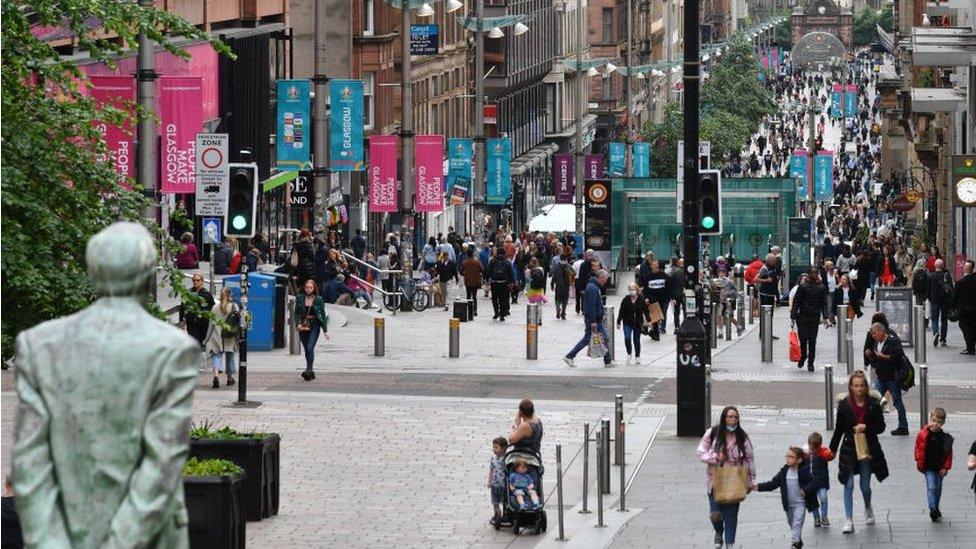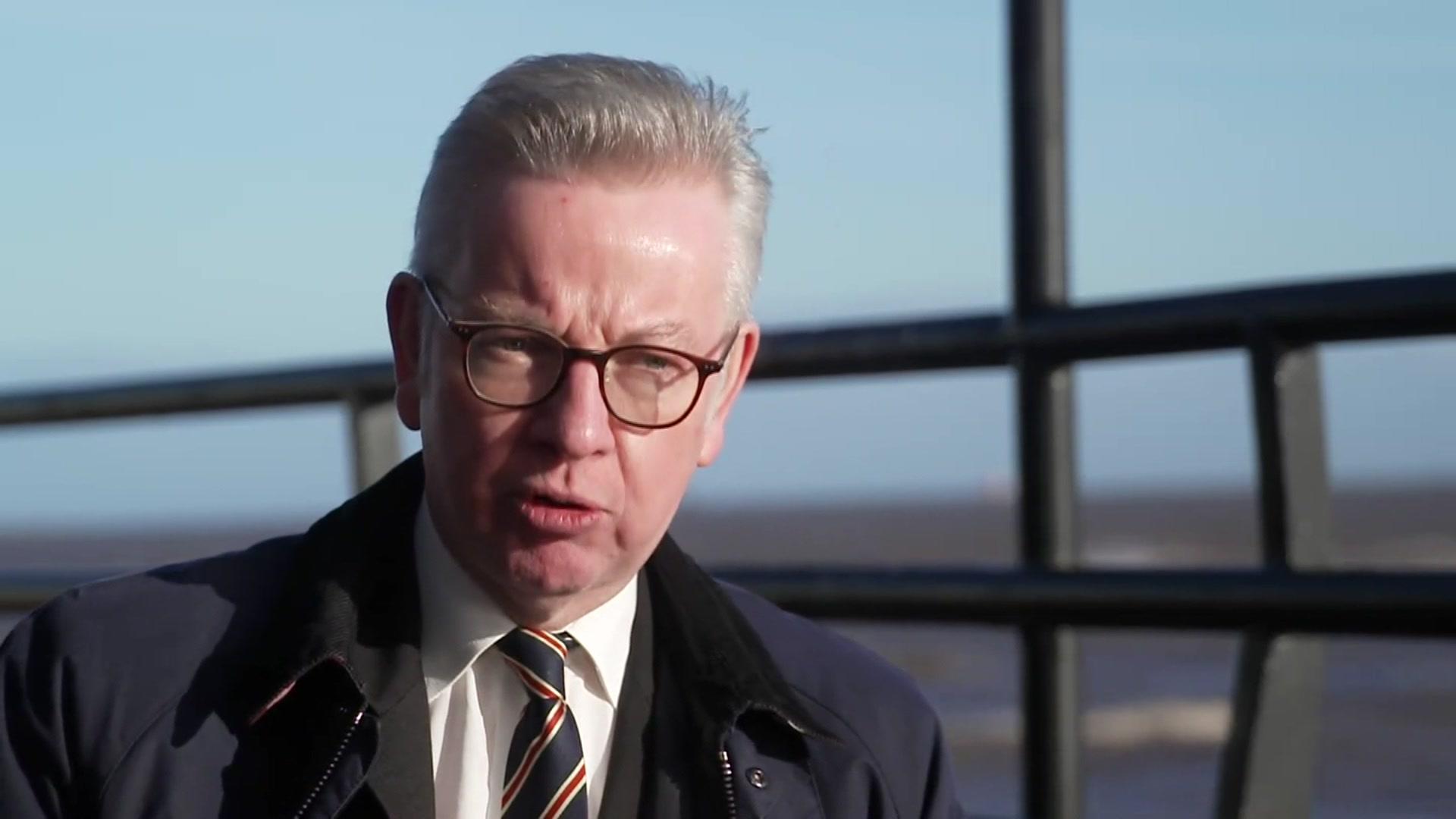Glasgow Silicon Valley-style research centre planned
- Published
- comments

A new innovation and research centre in the Glasgow area is part of the UK government's latest "levelling up" plans.
The UK government said the "Silicon Valley-style innovation accelerator" for Glasgow would create new jobs.
The research centre would be one of three across the UK sharing £100m in funding.
Michael Gove said the UK government was on a "moral mission" to boost prosperity in poorer areas.
The levelling-up secretary said Glasgow was one of many UK cities which had "huge potential but contain inequalities which hold too many back".
The Scottish government said any extra funding was welcome, but said it was "unacceptable" for UK ministers to make spending decisions in devolved areas without "meaningful consultation or engagement".
The first ministers of Scotland, Wales and Northern Ireland have been invited by Mr Gove to join what he hailed as a "new collective effort to level up" the whole of the UK.
He said it was important for "all layers of government - UK, devolved and local - to work together".
However ministers in Edinburgh and Cardiff have accused the UK government of seeking to sideline them by making spending decisions in areas of devolved responsibility.
Scottish First Minister Nicola Sturgeon said the funding was "rehashed money", and that the UK government had "muscled in" for "partisan political reasons".
She said: "It's really just an attempt by a beleaguered Westminster government, with an utterly discredited prime minister, trying to distract people's attention."
The Welsh government has made similar complaints, with economy minister Vaughan Gething describing the funds as "half-baked, incoherent funding pots hatched in isolation in Whitehall".
'Forefront of global research'
A Scottish government spokesman said ministers had "not been consulted in any way" on the plans for an innovation centre in Glasgow.
The research centre would be in the Glasgow City region area, where Glasgow and neighbouring councils have joined forces for initiatives to encourage economic growth and create jobs.
The UK government has allocated a £4.8bn fund to support regeneration, transport projects, and education across the UK as part of its levelling-up programme.
Scottish Secretary Alister Jack said: "Initiatives such as the Glasgow City region becoming an Innovation Accelerator, unlocking access to a share of £100m of new funding, will help Scotland continue its vital role in keeping the UK at the forefront of global science and research."
The move was welcomed by the Glasgow Chamber of Commerce, which said it was an "appropriate acknowledgement" of the quality of academic research and industrial links in the area.


Levelling up is largely a political project to back up electoral gains made by Conservatives in the north of England. These were areas where voters felt their cities, towns and regions had been left behind.
Since the 2019 election, £11bn has been committed to it, and the National Audit Office reports today that it has lacked adequate evaluation of whether it is making any difference.
It points to expert advice that its spending on small-scale infrastructure improvements do not have much impact on economic growth.
Even before the money was approved, the spending watchdog said there was none of the normal testing of policy to make sure it couldn't be achieved more efficiently by other means.
It was rushed. But the rationale and the strategy has been hard to define, and Whitehall has found it difficult to get to today's grand reveal.
Because the political project is about England, much of Michael Gove's statement is about the distribution of resources within England.

Hoy is one of the 70 islands that make up the archipelago of Orkney, which will be invited to the UK government's "islands forum"
At least as significant is the redistribution of power: 23 years after devolution to Scotland, Wales and Northern Ireland, this is the first comprehensive plan to devolve power across all of England.
Some elements extend across the UK. One of 12 "national missions" is to raise pay, employment and productivity in every region, and to narrow the gap between the south-east and the rest.
There's a measurable target also on high-speed broadband across the UK, and likewise on people's perceptions of their town centres and of their wellbeing.
Glasgow city region has already been chosen to get an accelerator hub to transfer research and development from universities to business, sharing £100m with the West Midlands and Manchester.
UK funds to replace EU research funding are also to be pushed beyond London, Oxford and Cambridge.
Watch out also for an islands forum, seeking to draw together the shared interests of islanders around England and Scotland and possibly into the Channel Islands and the Isle of Man.
That's one of the areas in which "levelling up" could run into devolution territory and a familiar constitutional turf war, adding to post-Brexit ways in which the UK government wants to be seen to have impact on the ground.

- Published1 February 2022

- Published16 January 2020

- Published15 March 2024
